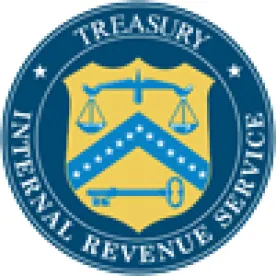Each year at the beginning of tax season, the IRS releases the “Dirty Dozen,” a list of twelve tax scams to be mindful of when individuals are filing their taxes. This list is something to consider sharing with colleagues or friends within your organization.
The first member of the 2016 Dirty Dozen is identity theft. Tax-related identify theft occurs when someone uses a stolen Social Security number to file a tax return to get a fraudulent refund. According to the IRS, tax scammers are becoming increasingly sophisticated, and taxpayers should be cautious about sharing their Social Security numbers, should be cautious when getting advice on tax issues, and should be cautious when viewing e-mails and accepting telephone calls asking for private information.
The IRS has compiled a guide to tax-related identify theft to help taxpayers identify the warning signs that identify theft has occurred. The warning signs include being contacted by the IRS or your tax preparer about 1) more than one tax return being filed with your social security number; 2) owing additional tax, refund offset or having collections against you for a year you did not file a tax return; and 3) IRS records show you worked for an employer when actually did not work for that employer. Often, the IRS is the first to discover tax-related identity theft and inform the victim.
Identify theft can occur in a number of ways including data breaches, phishing scams, and telephone calls from people masquerading as banks, credit card companies and the IRS. If you have been the victim of a data breach, you should keep in contact with the company to determine what type of information was compromised.
Recent phishing scams have included false emails to tax preparers that link to a fake website that tell the tax prepare to update their Electronic Filing Identification Numbers (EFINS). The scammer collects the tax preparers’ usernames entered into the false website. Tax preparers are advised to disregard these types of emails that appear to be from the IRS. Phishing scams have also targeted taxpayers by directing consumers to fake websites that look like the IRS website. These types of emails should be reported to the IRS at phishing@irs.gov.
Sophisticated telephone scams have cropped up where scammers pretending to be IRS employees try to gather information or to convince individuals that they must urgently pay money to the IRS via pre-loaded debit cards or wire transfers.
The IRS advises that it does not ask for credit card or debit card information over the telephone, and does not demand payment in specific forms like pre-paid debit cards. Also, the IRS will not demand payment for taxes due without giving you the chance to question or appeal the amount due. The IRS will also never threaten to have local law enforcement arrest you for non-payment.
If you determine your Social Security number was compromised as a result of a data breach, you can submit an Identity Theft Affidavit to the IRS if the IRS has informed you might have been a victim of identity theft or your e-file return was rejected as duplicate filing.
For more information the IRS provides a Taxpayer Guide to Identity Theft.




 />i
/>i

